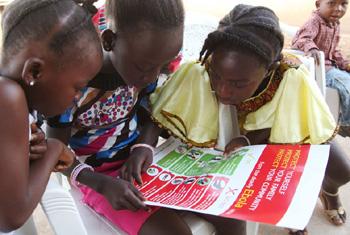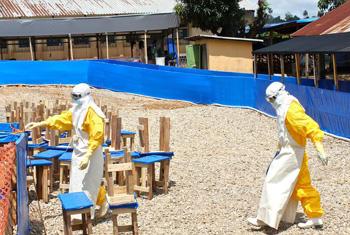South Sudanese father of five seeks better life in Uganda
The conflict which broke out in South Sudan between government and opposition forces in December last year has forced around two million people to flee their homes.
One of them is 45 year-old Gabriel who sought refuge with his wife and five children in the UN compound in Bor, the capital of Jonglei State.
But, in April 2014, his wife was killed when an armed mob forced its way into the compound and attacked people sheltering there.







